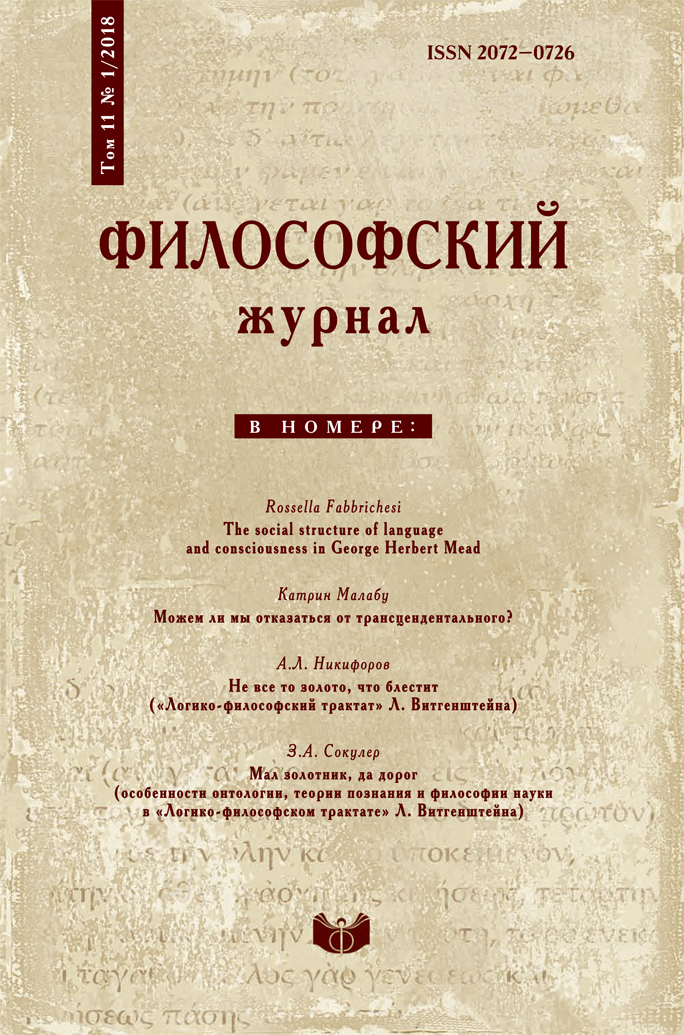Can we relinquish the transcendental?
(translated into Russian by Maxim Miroshnichenko)
DOI:
https://doi.org/10.21146/2072-0726-2018-11-1-99-110Keywords:
transcendental, contingency, postcriticism, nature, mathematics, Hume, Kant, MeillassouxAbstract
Is contemporary continental European philosophy preparing itself to break with Kant? An attack upon supposedly indestructible structures of knowledge is happening today: finitude of the subject, phenomenal given, a priori synthesis. ‛Relinquishing the transcendentalʼ: such is the leading project of postcritical thinking in the early twenty-first century as it appears in Quentin Meillassoux’s book. The familiar questions are posed in it with a renewed force: Was Kant genuinely able to deduce categories instead of imposing them, to prove the necessity of nature, to found the difference between ʽa prioriʼ and ʽinnateʼ? Should we consider, on the contrary, that the “problem of Hume” – the existence of an irreducible contingency of the world–has never been settled by the Transcendental Deduction? Such a claim implies that we are provided a sufficiently convincing concept of the irregularity of the laws of nature and of the possibility of a totally different world. Does After Finitude elaborate such concepts?






